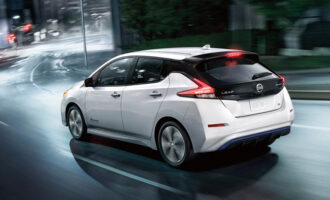
North Carolina seeks comments on draft zero emission vehicle plan
The North Carolina Department of Transportation (NCDOT) is seeking public comments on the U.S. state’s draft zero-emission vehicle (ZEV) plan through 6 September. The draft reports the activities NCDOT has undertaken and the input received thus far as it seeks to achieve Governor Roy Cooper’s goal of 80,000 ZEVs on the southern state’s roads by 2025. At the time that Cooper signed (on 29 October 2018) Executive Order No. 80, North Carolina’s Commitment to Address Greenhouse Gas Emissions and Transition to a Clean Energy Economy, there were only 6,000 electric vehicles registered in North Carolina.
Achieving this goal is seen as an important step to lowering greenhouse gas emissions, representing not only a cleaner more efficient means of moving passengers but also connecting with North Carolina’s ambition of creating and supporting clean energy jobs. The North Carolina Department of Transportation – in coordination with the North Carolina Department
of Environmental Quality – was charged with developing a strategic plan that establishes interstate and intrastate zero-emissions vehicle corridors, increases the installation of zero-emission vehicle infrastructure, and outlines best practices for increasing zero-emission vehicle adoption in North Carolina.
This plan focuses on both fully electric vehicles and plug-in hybrid vehicles. Based on survey feedback, more than 80% of online survey respondents report driving less than 50 miles per day, meaning that the majority of hybrids would, in common daily driving scenarios, function similar to a fully electric vehicle and not burn any fossil fuels. Therefore, plan collectively addresses both fully electric and plug-in hybrid vehicles as electric vehicles.
Based on the current status of zero-emission vehicle technology, North Carolina is promoting the advancement of electric vehicles to achieve the increased utilization of zero-emission vehicles and facilitate the reduction of greenhouse gas emissions in North Carolina.
This plan is the result of stakeholder outreach within North Carolina, research into successful practices in other states, assessment of what will be needed from industry partners to help adoption and defining efforts to drive broader acceptance of these zero-emission vehicles in the general public.
NCDOT will submit a final draft to Cooper at the North Carolina Climate Change Interagency Council meeting on 27 September 2019.
To make comments on the initiatives outlined in the draft plan, go to ncdot.gov.









